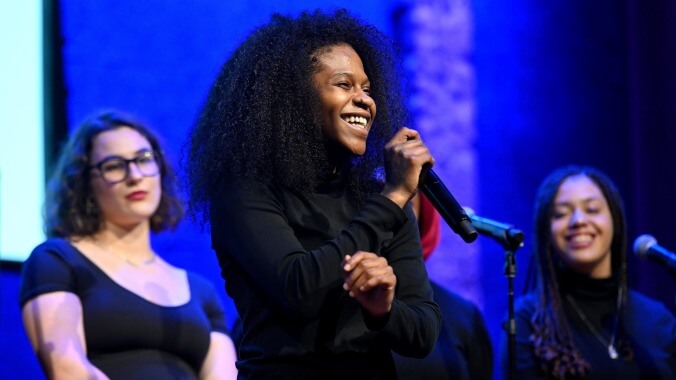American Idol winner Just Sam details experience returning to subway busking
Just Sam, a.k.a. Samantha Diaz, revealed they had returned to busking in the NYC subway after American Idol

Winning a television singing competition is not what it used to be. Sure, not every winner could be a Kelly Clarkson or a Carrie Underwood, but a certain segment of the population still knows the names of Reuben Studdard and Fantasia Barrino even if they didn’t achieve the same levels of superstardom as their peers. Nowadays, even if these competition series are garnering enough viewership to justify continued existence, the music and television landscapes have changed so much that winning doesn’t make as much an impact as it once did. The novelty has long since worn off, and hundreds and hundreds of competition hopefuls later, it could be argued that a certain fatigue has set in with the audience.
This is the landscape that American Idol 18th season contestant Just Sam (otherwise known as Samantha Diaz, who reportedly uses they/them pronouns) entered into following their win. Three years later, the artist posted an emotional (since-deleted) caption on Instagram about busking in the New York City subway. “Back in 2021, I was super embarrassed to be going back to the trains. I didn’t want people to know that I legit needed the money & I didn’t want people to know that it wasn’t optional,” wrote Diaz, as captured by Reddit. “I was disappointed in myself for allowing myself to fall so low after winning Idol, but then I had to take it easy on me and remember that I started my journey with Idol at 20 years old. Not even knowing anything about Hollywood or the music industry.”
 Keep scrolling for more great stories.
Keep scrolling for more great stories.
